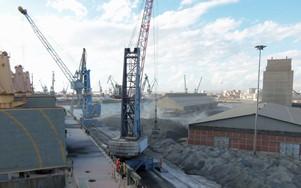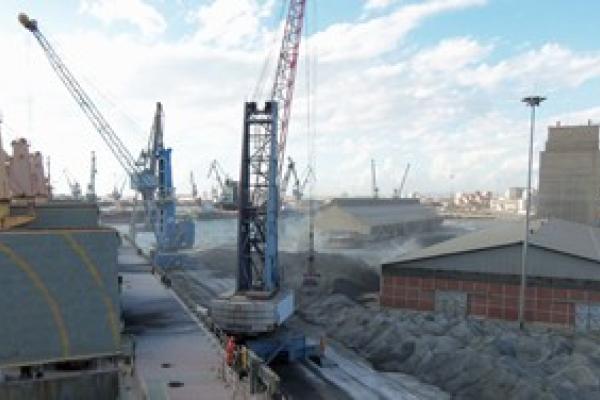
Stuart James
Published: July 01, 2013

It is a familiar contractual provision in time charterparties: if a vessel is arrested or detained in connection with a claim directed against the vessel or the owners, then any time lost is for the Owners to bear unless the arrest or detention is due to the acts or omissions of charterers or their agents. Thus, the time charterers are protected from delays due to detention of the vessel by authorities or claims by crew or any other parties including previous charterers and bunker suppliers. But for the charterers in the case of the Global Santosh[1], a matter that was before the English Commercial Court in November 2012, there were unexpected consequences.
Additional clause 49 of the charterparty was in a typical form. It provided:
“Should the vessel be captured or seizured (sic) or detained or arrested by any authority or by any legal process during the currency of this Charter Party, the payment of hire shall be suspended until the time of her release, unless such capture or seizure or detention or arrest is occasioned by any personal act or omission or default of the Charterers or their agents. Any extra expenses incurred by and/or during the above capture or seizure or detention or arrest shall be for Owners’ account.”
The claimants, NYK had chartered the Global Santosh to Cargill on an amended NYPE form for one timecharter trip from Sweden to West Africa. The cargo was one of six shipments of cement sold by Transclear SA (‘Transclear’) to IBG Investment Ltd (‘IBG’). IBG, the buyers, were named as the notify party on the bill of lading which specified the discharge port as “Port Harcourt (Ibeto Jetty)”. Under the ‘free out’ part of the sale terms, IBG were responsible for unloading the cargo and were liable to pay Transclear demurrage if the unloading of the cargo was delayed.
The vessel arrived at Port Harcourt on 15 October, 2008 but was delayed at the anchorage due to congestion caused in part by the breakdown of IBG’s unloader. Finally, on 18 December the vessel was called in to berth but was sent back because, on the previous day, Transclear had obtained an arrest order over the cargo, prohibiting its removal from the vessel, in order to secure a claim for demurrage against IBG for US$1.56million in respect of demurrage that had so far been incurred. By mistake, the arrest order also named the vessel. Cargill withheld hire for the period that the vessel was subject to the arrest order.
NYK disputed that the vessel was off-hire, relying on the proviso to clause 49 (“unless such… arrest is occasioned by any personal act or omission or default of the Charterers or their agents”). Their primary argument was that IBG, as the cargo receivers, were Cargill’s agents for the purposes of unloading the cargo and that the arrest had been caused as a result of IBG’s failure to unload the cargo within the specified time and to pay or secure Transclear’s demurrage claim. Transclear, they said, as a sub-charterer were also Cargill’s agents for the purposes of unloading the cargo and that the arrest had been occasioned by Transclear’s actions in obtaining the order. Thus, NYK argued, the seizure and/or detention was “occasioned by (the) personal act or omission” of Cargill’s agents for the purposes of clause 49.
The matter was referred to London arbitration. The majority of the Tribunal held that the arrest did not fall within the proviso to clause 49. The Tribunal did not address NYK’s primary submission that the arrest of the Global Santosh was occasioned by the act, omission or default of IBG, instead they concentrated on Cargill’s further submission that the arrest had been caused by the personal act or omission of Transclear.
As to whether Transclear had been acting as Cargill’s agents, they found there was no evidence that Cargill had expressly or impliedly consented to Transclear arresting the vessel or the cargo. They further found that Transclear were not performing Cargill’s obligation to discharge and, even if they were, they were not doing so as Cargill’s agent but as their sub-contractor or sub-sub-contractor. The Tribunal did not refer to NYK’s argument that IBG were Cargill’s agents in the reasons for their decision.
NYK appealed to the Commercial Court.
In allowing the appeal Field J held that in the context of a charter which provided for many acts to be carried out through the parties’ agents, the reference to “agents” in clause 49 was not limited to those parties who had been directly instructed by the charterers to carry out functions which are the charterers’ responsibility. The judge accepted NYK’s submission that sub-charterers or sub-sub-charterers or receivers to whom Cargill, by sub-letting the vessel, had delegated or sub-delegated the performance of its responsibilities under the charter, could be Cargill’s agents irrespective of the precise relationship between the delegate and the party above him in the contractual chain.
Field J did, however, accept Cargill’s submission that the act, omission or default must have occurred in the performance of the delegated task and that Transclear’s arrest of the cargo and (by mistake) the vessel, was not an act done by Transclear in the course of carrying out any responsibility delegated by Cargill.
Turning to IBG, Field J considered whether the acts, omissions and defaults of IBG occurred whilst IBG were under an obligation (as a delegate of Cargill) to unload the vessel and decided that they did. IBG were Cargill’s delegate of the obligation to unload cargo under clause 8 of the NYPE charter between NYK and Cargill and that the failure to unload within the laydays specified in the sale contract was an omission or default that occurred in the course of performing the obligation to discharge as delegated to it by Cargill.
In considering whether the act, omission or default of IBG had “occasioned” the arrest of the vessel, Field J held that the relationship between the act, or omission and the clause 49 event (arrest, seizure) “has to be such that it can be said as a matter of commercial common sense, that the latter was caused or brought about by the former”.
The judge rejected Cargill’s submission that, since the arrest of the vessel was a mistake, plainly the arrest was not “occasioned” by IBG’s acts. However, the issue of causation was referred back to the arbitrators, as in the words of Field J “a matter of commercial common sense and the Tribunal, being three commercial men conversant with shipping matters, are very well placed to decide it”.
The decision is somewhat surprising, finding as it does that the obligation to discharge within the laydays under the terms of a sale contract had been delegated under clause 8 of the NYK/Cargill charter. The Commercial Court decision was appealed to the in February 2014 and subsequently the Supreme Court in December 2015.
[1] NYK Bulkship Atlantic NV v. Cargill International SA [2013] EWHC 30 (Comm)


